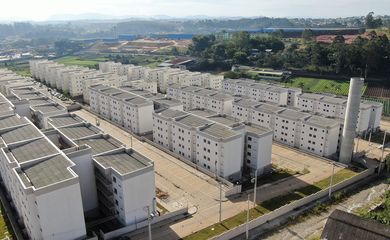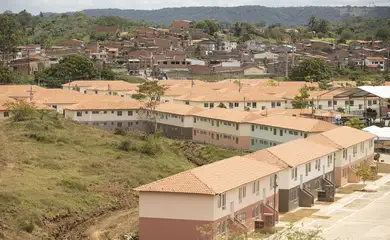Brazil posts housing deficit of 6 mi homes

Brazil’s housing deficit stood at 6 million households in 2022—8.3 percent of the country’s total occupied housing. The amount is up 4.2 percent from 2019.

The deficit is the number of households that need to be replaced as a result of precarious homes (makeshift or hazardous building materials), multifamily co-living (more than one family living in a single-family space), excessive rent (families earning up to three minimum wages and spending at least 30 percent of their income on rent), and densification (three or more people living in each bedroom of a rented home).
The figures were released on Wednesday (Apr. 24) by the João Pinheiro Foundation, in partnership with the National Housing Secretariat of the Ministry of Cities.
Rent
In the overall result, excessive rent stands out, affecting 3,242,780 homes, which accounts for 52.2 percent of the housing deficit.
“We went through a period with no public housing policy recently; there was the health and economic crisis; families were left without an income. The main component of the housing deficit is the excessive burden of rent. […] These are families that need new housing,” said Socorro Leite, executive director of the NGO Habitat para a Humanidade Brasil. “We need continued public policy with an increase in income, as well as investment in housing infrastructure.”
According to the study, women account for 62.6 percent of all the people responsible for the household (3,892,995), and black people (except in the South of Brazil) make up the majority in virtually all components, and as a result in the deficit itself.
The absolute housing deficit by region is 773,329 in the North, 1,761,032 in the Northeast, 499,685 in the Central-West, 2,433,642 in the Southeast, and 737,626 in the South.







